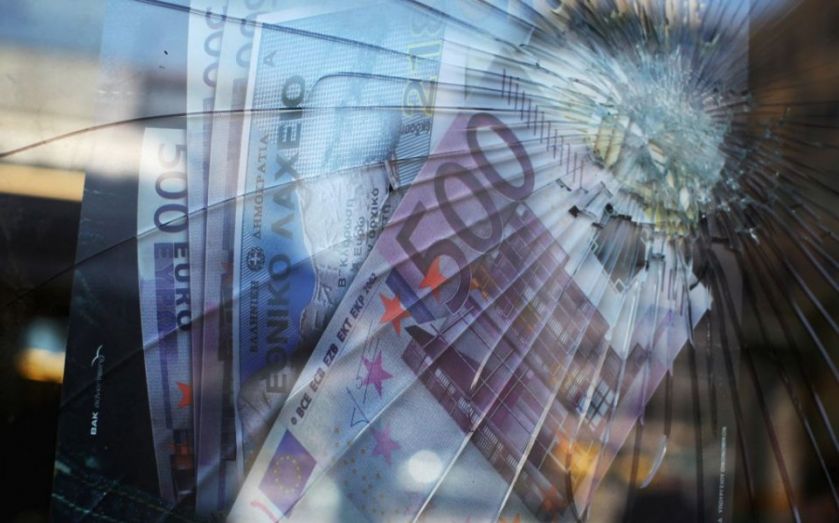How will a Grexit affect the euro? Analysts give their view

As negotiators from the International Monetary Fund, the European Central Bank and just about every country with an interest try to maintain civil tongues over negotiating tables, things are looking increasingly bleak for Greece's continued participation in the euro.
Read more: Countdown to Grexit – the key dates that could save Greece
And yet, so far, markets have barely shrugged. After talks disintegrated last night, the FTSE rose to 6,758 this morning, its highest point since last Friday. Meanwhile, Germany's Dax was up 1.3 per cent, while France's Cac 40 was up 1.36 per cent.
And although the euro was down 0.48 per cent against the dollar at $1.1304, it's nothing like the kind of shake-up many had expected under such fraught circumstances.
What's going on? Here are some analysts' verdicts.
No more sympathy
London Capital Group's Ipek Ozkardeskaya
Greek tears attract no more sympathy… The euro’s sensitivity to Greece decreases, a potential Grexit shock should have limited impact on the euro. Following the 2012 default, EURUSD had bounced back on 1.20 to add 20 big figures to the first quarter of 2014.At the final stage of this rupture, a Grexit may not be as dramatic – both sides need to breathe.
Its resilience will be tested
Bank of America Merrill Lynch strategists
The recent resilience of the euro to negative Greek news-flow could be tested as we approach the 30 June IMF payment deadline.
If no deal is found we think that Europeans would seek to create a "grey territory" trying to avoid a Grexit after a default. This would be a very fragile equilibrium but avoiding irreversibility would be at the centre of the Europeans' priorities. The European Central Bank would play a crucial role to deal with contagion, but a much longer crisis would need a deeper involvement from others
Prepare for the worst
ClearTreasury's Peter O'Flanagan
Interestingly the euro remained supported vs the dollar yesterday, although it has begun to lose traction in the last 12 hours… The rhetoric from euro area finance leaders has become increasingly negative: comments like “to secure dialogue with adults in the room” from the IMF’s Christine Lagarde highlight the frustration at negotiations, while some leaders are now just refusing to say anything on the issue, almost as if they have given up. At this stage we are looking to hope for the best but prepare for the worst
Not necessarily a sharp fall
Societe Generale's Kit Juckes
It's a safe bet that the main task on investors' and traders' minds this morning is to reduce risk ahead of the weekend.Reducing risk doesn't necessarily mean the euro will fall sharply… Speculative shorts may have been cut back, but if foreign holders of European equities were, say, to cut back their exposure they would also cut back their FX hedges so we would see equities fall and the euro, perversely, would be bought.And let's face it, fools like me have been bearish of euros for long enough that we aren't going to suddenly become more bearish today. Just bemused that EUR/USD remains above 1.13 at all.
I don't buy it
Oanda's Craig Erlem
It’s been suggested that the gains in European markets and in US futures can be attributed to optimism over a deal being done or a belief that a “Grexit” would be a positive thing, but I don’t buy any of this. In my view, there’s only a couple of things that could explain these moves.
Either they’re technical, with many European indices ending yesterday’s session with rather bullish setups, either hammer candles or engulfing patterns, which would explain today’s correction after large losses recently. Or, today’s quadruple witching is driving the bizarre moves, which again is more likely than anything Greece associated.